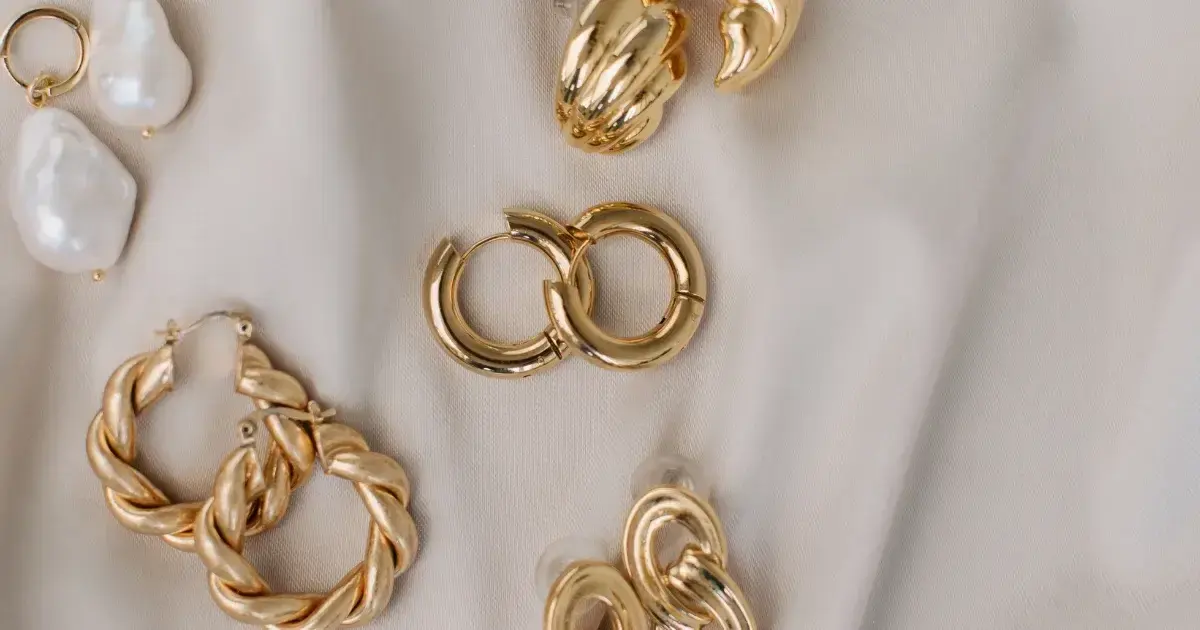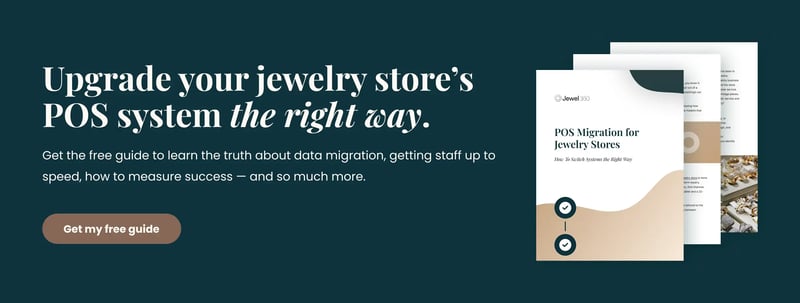
“My diamond supplier just raised prices 20% with no notice.”
“My silver supplier keeps shipping late.”
“My gemstone supplier feels impossible to trust nowadays.”
If any of those scenarios sound familiar, you’re among many who face the same challenges.
Jewelers everywhere are navigating a supplier market that feels shakier than ever. Prices are unpredictable, delivery dates slip without warning, and sometimes the vendor you relied on last year seems like a completely different company today.
In an industry where every piece of jewelry reflects your reputation, your suppliers can make or break your business.
So, how do you find vendors you can truly count on — and keep those jewelry supplier relationships strong once you do?
Let’s break it down.
Common Challenges Jewelers Face With Suppliers Today
The supplier landscape today looks very different than it did just a few years ago.
Some of the biggest issues we hear from jewelers include:
- Lab-grown diamond price swings: Not long ago, lab-grown stones were the affordable, predictable option. Now, prices can change week to week. If you’re not watching closely, you risk overpaying or losing margin on sales.
- Stricter sourcing rules: Shoppers want to know where their jewelry comes from, so certifications like the Kimberley Process and Responsible Jewellery Council membership are becoming nonnegotiable. If a supplier can’t provide the paperwork, you’re the one left answering to customers.
- Vendor consolidation: Smaller, boutique suppliers are being snapped up by larger companies. This often leads to higher minimum orders, which makes it tough for independent jewelry stores to test new products or carry a wide mix without tying up a lot of cash.
- Shipping delays and rising costs: Global shipping issues and fuel surcharges make delivery dates less reliable. For custom pieces, even a short delay can throw off an entire order.
- Inconsistent quality from overseas vendors: Lower prices can be tempting, but stories of inconsistent quality, mismatched stones, and poor metal finishes are all too common. And with overseas returns being nearly impossible, many jewelers are left eating the loss.
- Tighter payment terms: Vendors are requesting faster payments, often upfront, which can strain cash flow — especially if your customer orders haven’t been paid in full yet.
If you’ve run into any of these obstacles, it’s a challenge many jewelers share. These are the daily realities that make choosing (and keeping) the right supplier relationships so important.
Related Read: 4 Best Wholesale Jewelry Vendors in 2025
Red Flags That Signal an Unreliable Jewelry Supplier
Luckily, many of these common issues can be avoided if you know what to watch for.
Here are some clear warning signs:
- No certification documents: If a supplier hesitates or outright refuses to provide ethical sourcing paperwork, walk away. Transparency is nonnegotiable.
- Too-good-to-be-true pricing: A supplier undercutting the market by a huge margin usually indicates low quality, questionable sourcing, or hidden costs.
- Poor communication: If it takes days to get a reply to a simple question, imagine how responsive they’ll be when a shipment is late.
- No track record: New vendors with no online presence, no references, and vague details about their company are risky bets.
- Inconsistent product quality: If samples don’t match descriptions or vary significantly from piece to piece, that’s a major red flag.
A bad supplier relationship can cost you customers, time, and thousands of dollars. It’s always cheaper to catch the warning signs early than to recover from a bad experience later.
How To Vet a Jewelry Vendor Before You Place an Order
Finding the right vendor is about reliability, quality, and trust.
Here’s a step-by-step approach to help you find the perfect fit:
- Start with samples: Don’t dive in headfirst — order a small batch or a few pieces to get a feel for quality, packaging, and delivery times before making a larger investment.
- Ask around: Other jewelers can be your best source of truth. A quick phone call or email may give you insights you can’t find in a brochure.
- Do some digging online: Reputable vendors usually leave a trail — a professional website, reviews, or trade references. If you can’t find much, that’s a red flag worth noting.
- Test their customer service: Pay attention to how quickly they respond and how thorough their answers are. If they’re slow or vague now, consider what it’ll be like when you need urgent support or have a product issue.
- Watch for consistency: Order the same product twice or compare a few samples. If the quality is all over the place, think carefully before relying on them.
Taking the time to vet vendors upfront saves a lot of stress later.
Tips for Building Long-Term Jewelry Supplier Relationships
Finding a reliable supplier is just the first step. The real work comes in keeping that relationship solid — and the truth is, suppliers appreciate dependable customers just as much as you value dependable vendors.
Here’s how to make yourself a supplier’s go-to client:
- Pay on time, every time: Nothing builds credibility like paying promptly. Your reputation in the supplier community matters, and good habits often lead to better terms down the road.
- Communicate clearly and early: Don’t assume your supplier knows what you need. Share forecasts, busy periods, and special orders ahead of time to avoid confusion and last-minute stress.
- Start small and grow gradually: Test a new supplier with smaller orders first. Once trust is established, you can confidently scale up.
- Respect their time: Just as you want vendors to respect your deadlines, respect theirs. Last-minute changes or unclear orders can strain the relationship.
- Show loyalty: Constantly hopping between vendors for minor price differences can hurt long-term partnerships. When you find a good vendor, it often pays to stick with them.
Related Read: 7 Jewelry Store Product Strategies To Improve Your Inventory
How Jewel360 Simplifies Jewelry Supplier Relationships
Even with strong relationships, keeping track of multiple suppliers can be overwhelming. That’s where the right tools make all the difference.
Jewel360 is an all-in-one point of sale (POS) system made specifically for jewelry stores.
With Jewel360, you can:
- Centralize workflows: Manage all your jewelry operations in one cloud system — sales, e-commerce, repairs, appraisals, and reporting — so purchasing and vendor coordination stay in sync with the rest of your business.
- Get insights faster: Use built-in dashboards and reports to track inventory needs and the impact of your purchasing decisions.
- Cut down on back-and-forth: Keep work orders, customer updates, and daily tasks in one place, so you don’t have to dig through emails to stay on top of orders.
Sagan Woodbury from Woodbury Jewelers says, “Jewel360 has given us the opportunity to truly expand our business. From having our entire inventory on our website to easier communication and ordering with our vendors, this POS beats our old one by miles.”
Jewel360 doesn’t replace the relationship side of vendor management, but it does give you the visibility and control to make smarter decisions.
If you’re ready to take the next step, explore our Build and Price tool to find the best plan for your jewelry store today.




 by
by .png?width=101&height=101&name=Group%201%20(1).png)






.webp?width=520&height=294&name=JWL%20118.24%207%20Modern%20Jewelry%20Store%20Interior%20Design%20Ideas%20To%20Attract%20More%20Customers%20(BLOG).webp)

![5 Best POS Systems for Jewelry Stores [Updated for 2026]](https://jewel360.com/hs-fs/hubfs/_Blog/Blog%20Featured%20Images/Jewel360/1%2015%205%20Best%20POS%20Systems%20fro%20Jewelry%20Stores%20%5BBLOG%5D.webp?width=520&height=294&name=1%2015%205%20Best%20POS%20Systems%20fro%20Jewelry%20Stores%20%5BBLOG%5D.webp)